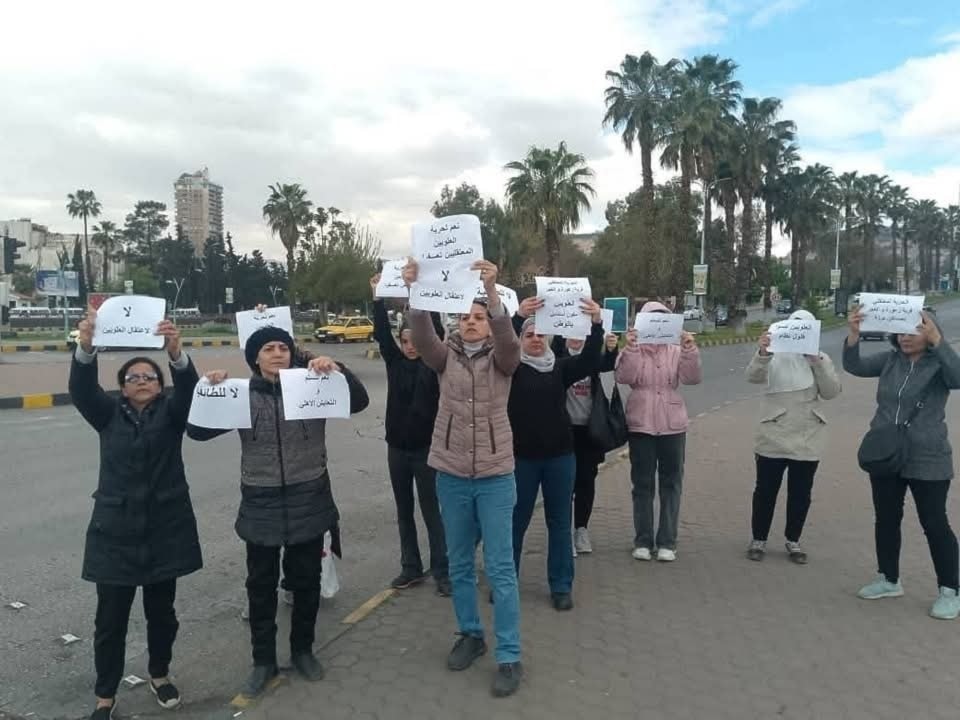Barzeh protesters seeks answers after Syrian forces arrest 50
Families from the Syrian village of Barzeh, located near Damascus, protested the arrest of over 50 young men by Security Forces without a clear reason.
-

Families from the Syrian village of Barzeh demonstrate after the arrest of 50 young men from the village, Damascus, Syria, on April 14, 2025 (X/ @SyrianFeanor)
Syrian families staged a protest in the Umayyad Square in Damascus on Monday, following the arrest of several men from a village without a clear reason.
Families of detainees from the Mazakan Barzeh neighborhood staged a protest in Umayyad Square in the heart of Syria's capital, Damascus, calling for information on the fate of their detained relatives and clarity on the reasons for their arrests.
🇸🇾 #Damascus:
— SyFëanor (@SyrianFeanor) April 13, 2025
After General Security arrested close to 50 men, their fathers and mothers are protesting and demanding their release. pic.twitter.com/NkHC7SRjlM
The families stressed that the detentions were arbitrary and completely unjustified, calling on the Syrian government to disclose the detainees' whereabouts and the detention centers holding them.
A force from the General Security Agency stormed the Mazakan Barzeh neighborhood on the outskirts of the Syrian capital on Sunday, arresting 50 young men from the area, including university and high school students, without providing any reasons, sparking widespread public anger.
This comes as Syria is witnessing many violations against civilians, including extortion, threats of massacres, and murder in some cases, prompting international organizations to accuse them of committing war crimes and violating international law.
Pro-government groups committed war crimes in the Syrian coast: Amnesty
Earlier in April, Amnesty International found that the events that unfolded in Syria's coastline area were "war crimes", holding Syrian interim government forces accountable for the massacres.
Amnesty International highlighted that pro-government militants killed over 100 people in the seaside city of Baniyas on March 8 and 9, 2025. The group investigated 32 incidents and determined that they were purposeful and targeted the Alawite minority.
Eyewitnesses informed Amnesty International that armed men asked victims if they were Alawites before threatening or murdering them.
In certain cases, they held them responsible for transgressions committed by the ousted regime. Authorities also compelled families to bury their loved ones in mass graves, with no religious or public rituals.
Agnès Callamard, Amnesty International's Secretary General, urged "accountability for those responsible for this horrifying wave of brutal mass killings."
Callamard added that the organization's information shows that "pro-government militias deliberately targeted Alawite civilians in horrific retaliatory attacks, executing individuals in cold blood," as the government did not interfere for two days to end the atrocities.
She underlined that the scale and method of these deaths constitute "war crime", adding that states are obligated to guarantee prompt, independent, effective, and impartial investigations into claims of illegal killings, as well as hold perpetrators accountable.

 3 Min Read
3 Min Read










